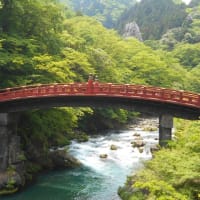
Let us now recall the five principles.
(1) First Principle (Principle of Value): Value is a function of time, (2) Second Principle (Principle of Improving Living Standards): Efficiency is a function of value, (3) Third Principle (Principle of Community) (4) Fourth Principle (Principle of Reaction and Internal Principle): Reaction forces are a function of values; (5) Fifth Principle (Principle of Environment and External Principle): Principle: The first four forces are influenced by the environment or external forces.
What made European civilization different from other civilizations? I think it can be said that Europe was unique from other civilizations in that the spiritual and the secular were dualized, that is, in terms of values. Medieval European civilization is similar to Indian civilization in that the clergy influenced administration. It is also similar in that ancient cultures were restored in new forms. Although they are different eras, it could be said that the reason the two developed differently was because of different religious values. European civilization attacked Islamic civilization, and Islamic civilization attacked Indian civilization. What made European civilization aggressive was the growth of cities, commerce, and trade, and this secular way of looking at things is probably closely related to the birth of scientific thought in the form of skepticism of the authority of spirituality. After the Renaissance, European values went through Da Vinci and Galileo to Newton, and they were not limited to conquering the geographical world, but also conquered various genres of the intellectual world. They did so with the methodology of the scientific spirit. One part of that intellectual world is various technologies, and it can be said that it is the power of efficiency: the second principle (the principle of improving life). Another intellectual world is the political world, where democracy can be described as a form of social structural power: the power of the third principle (the principle of community development).
In other words, the value of European civilization was something that was opposed to historical religion and the conquest of the entire intellectual world (not just spatial) through the methodology of the scientific spirit.
And so the idea of reaction force: the fourth principle (principle of reaction and internal principle) emerges. Why did European civilization, which could be said to be the epitome of the scientific spirit, collapse in an irrational way? The reaction force is the idea that when a force is applied, a force that tries to return to the original state also occurs, but where did European civilization try to return to? This can be seen from what the British Empire lost. Religion and aristocracy, which had long been the mainstay of European civilization's values, had finished their roles, and it is thought that some kind of force was at work to return to those positions. The colonies held by imperialist nations, mainly Britain, were a burden to the industrial world, but they were meaningful as investment destinations and in providing social status, and the vanguard that went into the colonies were often missionaries and children of clergy. The background to this was the "ethical conviction" mentioned earlier.
America rejected colonies and restructured the world in a way that favored the industrial sector. The Soviet Union was the same in this respect, but the Soviet Union had already rejected the nobility and religion after the Russian Revolution. America did not originally have an aristocracy (although there was racism), and religion was relatively free. World War I and World War II were wars between the rising military state of Germany (whose officers were also aristocrats: Junkers) and the declining British vested interest class (also aristocrats: gentlemen), and it could be said that both Britain and Germany lost and America (the financial class, not the aristocracy) won. Up until this point, it does not seem that any decisive external forces had been exerted on European civilization . European civilization (Europe, America, Russia) of this era had overwhelming power. And it was maintained during the Cold War, but in the process of diversification, European civilization shrank relatively. The collapse of the Soviet Union could also be said to be one of the shrinking of European civilization. The phenomenon of American unipolar dominance is also in a difficult situation after the Lehman Shock.
all rights reserved to M Ariake


























※コメント投稿者のブログIDはブログ作成者のみに通知されます